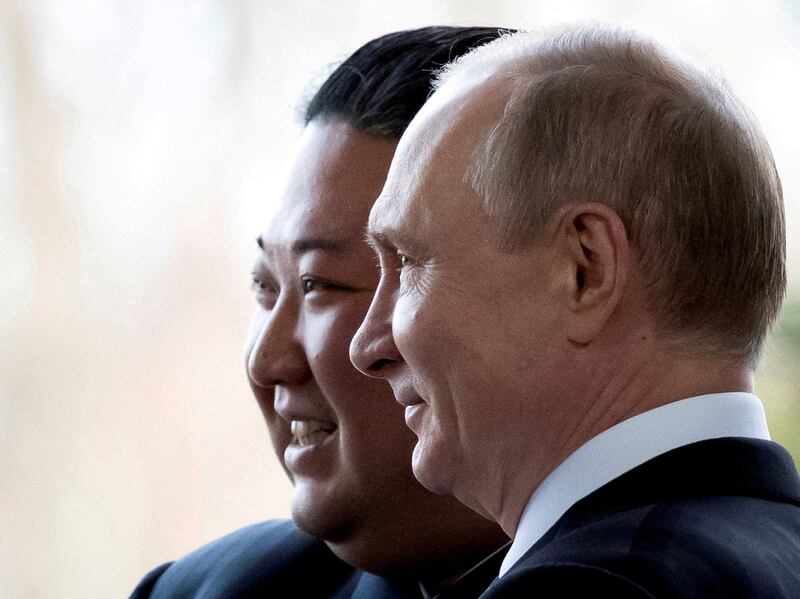China and South Korea’s leaders have met Thursday amid a slightly tense climate, with differing priorities - Seoul emphasizing the need for Beijing’s cooperation in the security domain, while Beijing prioritizing economic collaboration.
“If we manage our bilateral relations by adhering to the multilaterally agreed rules in the international community, we can reduce many problems and build trust between the two countries,” South Korea’s President Yoon Suk Yeol told Chinese Premier Li Qiang in Jakarta, according to the South’s presidential office Thursday.
Yoon, who is currently in Indonesia to attend the Association of Southeast Asian Nations (ASEAN) meeting, stressed that Seoul’s military cooperation with the United States and Japan will only be strengthened if North Korea intensifies its nuclear programs, the presidential office said.Yoon's remarks can be seen as Seoul pressing Beijing to play a constructive role in the Korean peninsula.
Chinese Premier Li suggested that the two countries explore new ties and deepen their long-standing trust as they promote common interests.
A South Korean diplomatic source told Radio Free Asia that the meeting was requested by the Chinese side.
The surprise meeting came as North Korean leader Kim Jong Un is set to meet Russian President Vladimir Putin this month, according to U.S. and South Korea authorities. While the specific agenda for the summit remains unclear, ammunition trading is expected to be on the negotiation table, given Russia's urgent need for military equipment.

As North Korea and Russia aim to strengthen their diplomatic and military ties amidst tensions with the U.S. and its regional allies, they are seeking to involve China into the equation as this would transform their bilateral relationship into a formidable bloc against the U.S.-South Korea-Japan cooperation. Russia has formally proposed to China and North Korea for a joint naval drill in July, according to South Korea's National Intelligence Service Monday.
Any move to strengthen political and military ties with North Korea and Russia, however, is most likely pressure that China can do without. It still needs to maintain its relations with the U.S. and its allies, especially on the economic front, where access to international markets and foreign investment is crucial to arrest a further deterioration of its economy.
China extended its olive branch to the U.S.’s regional allies at the ASEAN plus three meeting Wednesday, with Li placing extra emphasis on the need to strengthen the trilateral economic cooperation among China, South Korea, and Japan. The premier added that the three nations should seek to promote regional economic integration.
“The key is for all of us to face up to problems, eliminate misunderstandings and manage our differences,” Li said. “It’s very important at present to oppose taking sides, bloc confrontations and a new cold war.”
While China values Russia and North Korea as its strategic asset against the U.S., becoming too closely aligned with the authoritarian neighbors may risk jeopardizing any delicate move that Beijing may take to find a balance with the U.S. and its regional allies.
As much as China wants to draw South Korea and Japan closer to its side economically, it is also unlikely to compromise on security matters, said Cheon Seong-whun, a former security strategy secretary for South Korea’s presidential office.
“China would be particularly wary of the extent of the trilateral security cooperation among the U.S., ROK, and Japan,” he said, referring to South Korea by its formal name. He even noted that Beijing would be watchful of the cooperation possibly extending to the Taiwan matter. “China, thus, is most likely to maintain its ties with Pyongyang and Moscow to counterbalance security cooperation among democracies, even as it extends its economic olive branches.”
Edited by Elaine Chan and Taejun Kang.
